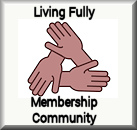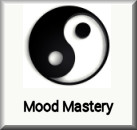John Gottman’s research found that defensiveness was one of 4 important ways that relationships break down. If you are the person in the relationship that is defensive, it is so important that you take care of this in yourself so that the relationship is not damaged. Often when one person in the relationship brings up something negative, the person who is defensive immediately feels threatened and takes steps to lower that threat. They do this in somewhat predictive ways (you will know the pattern). They will often blame the other person ‘you are just angry and picking on me” or ‘you are just perfectionistic’ or grumpy or any characteristic that will deflect the negative feedback from themselves to another. Mind reading is also a favourite.’ You are saying this because…’ Another strategy used is to minimize the complaint in an exaggerated way or in some way to try to make the other person seem ridiculous for even bringing up such a thing. And then another favourite in the defensive dance is to try to show the other person as an imperfect person in some way or another. I am sure you recognize the dance of defensiveness. All of this occurs just because your partner brought up a legitimate complaint. There will be negative feedback in relationships and legitimate complaints. If you make it impossible to bring up negative feedback by defensiveness you will lose out on knowing your real self, accepting you are human with faults and not be able to take the opportunity for change. Even worse your partner has to move away from the connection because you are not safe. Why does this happen? It happens when our self esteem or safety is shaken and in response to this and past events, our brain immediately activates well used neural pathways, and takes steps to lower our anxiety by the means of the dance above. This is the non thinking part of the brain, where reactivity takes over. If you are unable to learn to regulate this reactivity during any of life’s challenges, including negative feedback, you will remain in the control of this non thinking part of the brain that costs you so much in relationships. Reactivity usually accompanies blame as seen above and what seems like a protection makes you feel powerless in the end. If this is your pattern in relationships, it is so important to learn to manage your reactivity and create your own sense of safety (this is just a complaint – it is normal I am the same ok -ness as I was yesterday – I can accept me with this complaint etc). Look at your beliefs about you and the world. Examine and change those that are not working towards good relationships. Not an easy pattern to break but worth the work. Go forth and be wonderful!
Off
Defensiveness in Relationships
Posted by Lynda in Healthier Marriages, How To Improve Your Relationship Communication, How to Love Well, How To Make Your Relationship Work and tagged with communication, connection, healthy relationships
MENU
Links
Categories
Archives
Good Reads





